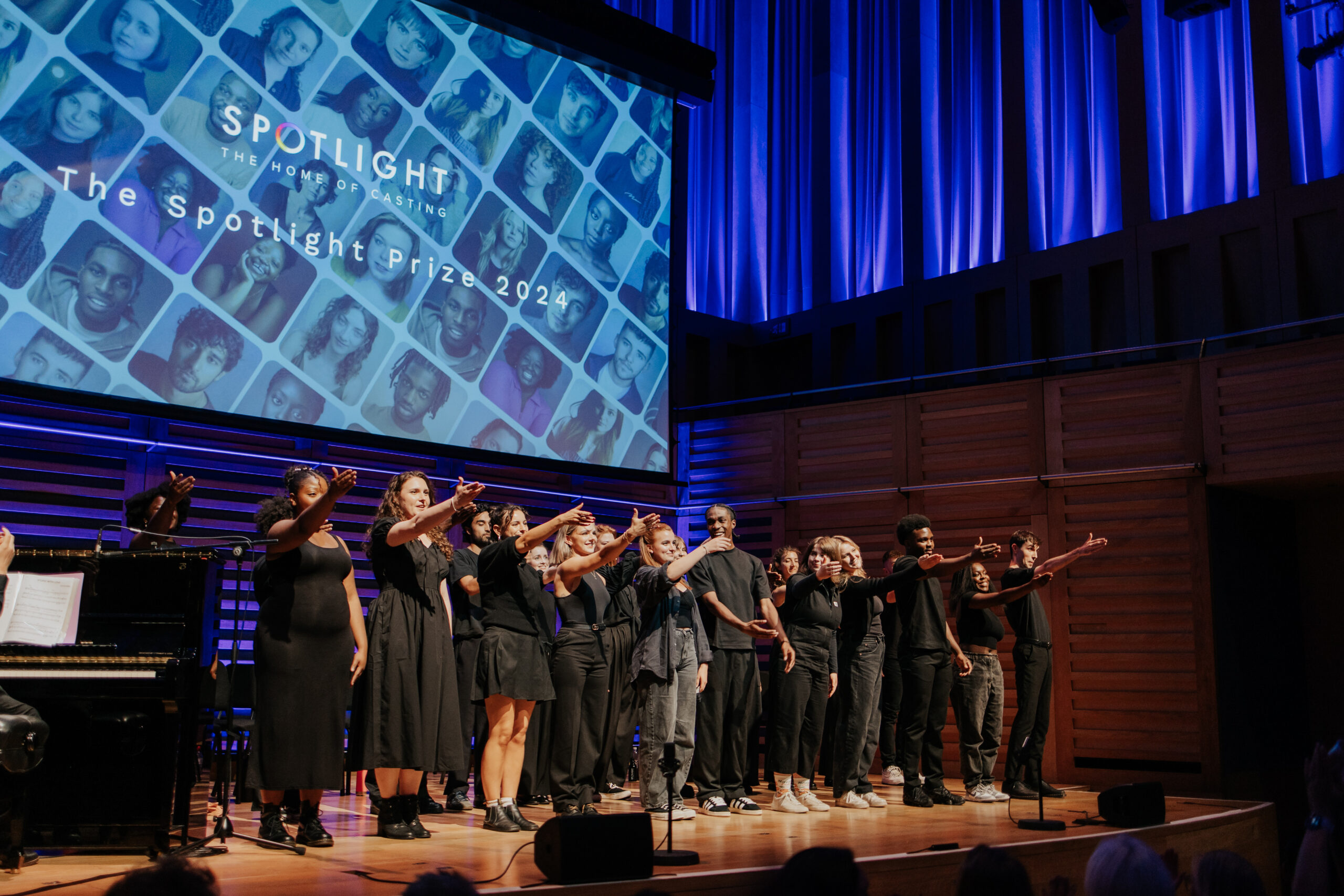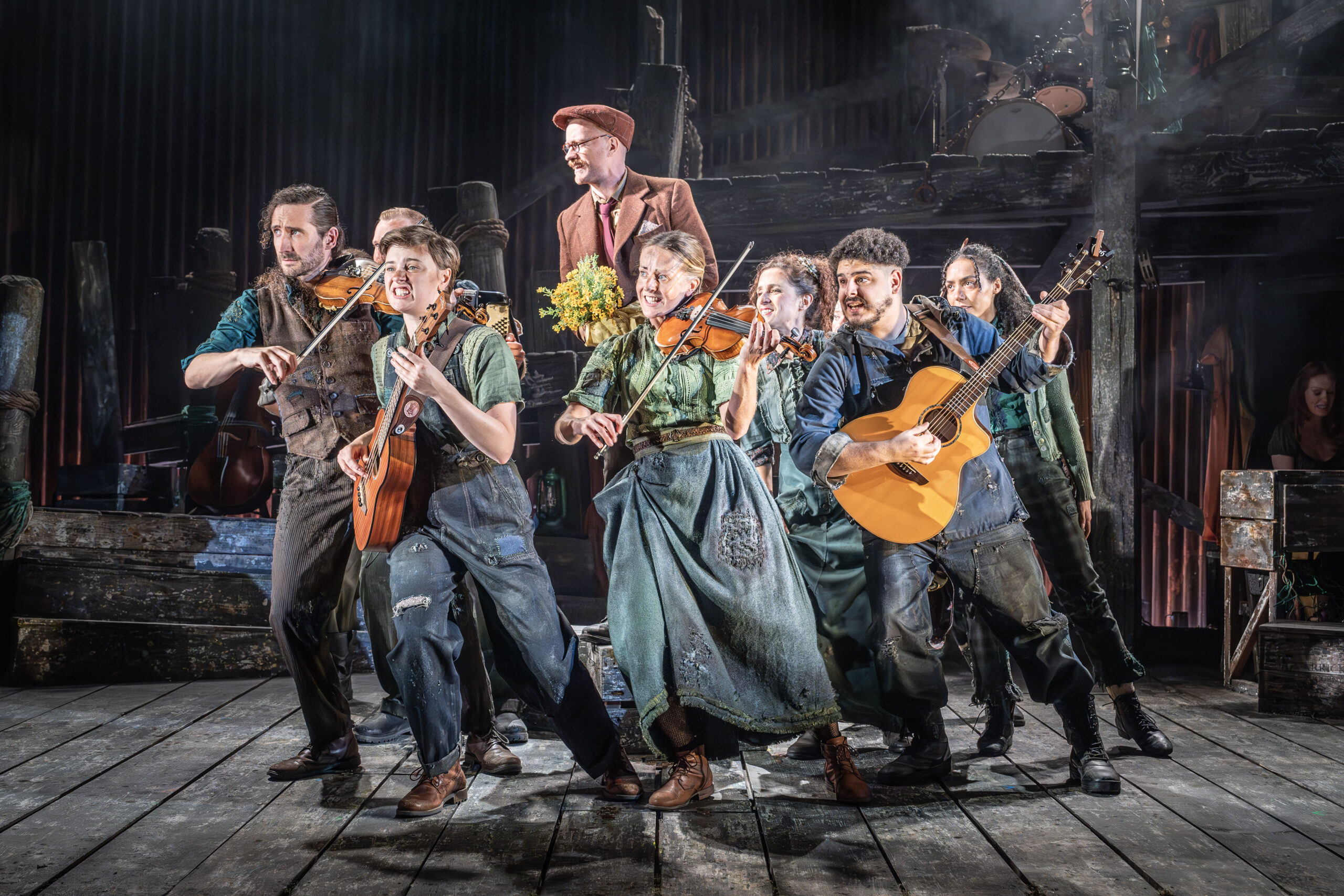We chat to Casting Director Martin Vaughan CDG about opportunities for performers in the games industry.
I think people might have a set idea about what video games are without realising what an expansive medium for storytelling they can be.
Martin Vaughan works as the in-house Casting Director at SIDE, a global studio specialising in character performances for video games. He’s cast for Cyberpunk 2077, Assassin’s Creed Valhalla, FIFA: The Journey, Bleeding Edge and many more titles, so who better to give his insight into the gaming world and how performers can get involved?
Hi Martin! How did you come to be a casting director?
I started here [at SIDE] as a runner. SIDE was very much involved in casting and recording for video games but, at that time, they were also a studio for hire so did radio ads, TV voiceovers and corporate VO jobs too. However, as the games side of the business grew and grew, that quickly became our main focus.
I started assisting with long-listing for castings, learning how Spotlight works and it was something that I became more and more interested in. I’d always been that annoying person watching a film or TV show and wondering aloud where I’d seen that actor before so I was finally able to put that skill to use! In 2014, I took over as Casting Director.
What’s the process of creating breakdowns and finding performers for your projects?
When a project comes in, I usually receive a rough breakdown of the story and details of the characters that need to be cast. I’ll have a discussion with the game developers about the setting of the narrative, who the main characters are along with any ideas or reference points they have in mind. These are all things that will inform breakdowns or Spotlight searches.
If the game has a specific setting, the US or Scandinavia, for example, then I’ll be searching specifically for performers with those accents. Or casting could be led by a particular vocal type rather than accent. It depends entirely on the project and the particular needs of the creative team involved.
Do you think high-profile performers getting involved in videogames, such as Keanu Reeves playing Johnny Silverhand in Cyberpunk 2077, is helping raise awareness of the work available in the industry?
Yes, that was very exciting! I think it does, yes. Games have featured recognisable voices for a long time now. That said, in my early days, it was definitely the case that we often needed to educate some agents about what we did, and exactly what we would be asking of their talent as it was all a little more mysterious perhaps. Even now I think people might have a set idea about what video games are without realising what an expansive medium for storytelling they can be. You can tell stories in games in a way that you can’t in TV and Film. The way that the player has a role in shaping the narrative has the potential to make it a much more immersive experience.
Seeing high-profile performers getting involved is fantastic and hopefully shines a light on games as a legitimate format for performance with a wide range of character types. Plus, a lot of actors are going into the profession having played video games their entire lives, so they obviously understand them and love them and see it as a really exciting medium to perform in.
What are the different opportunities for actors in this industry?
There are a few different types. There will be games where I’ll be casting for voice-only roles so the chosen actors would be in a booth playing a character using only their voice.
Performance capture casting is when I’ll be looking for a performer who will be playing the character physically as well as vocally. In this instance, actors will be performing on a soundstage in a suit covered in small dots or sensors, and that performance will form the basis of the animation of that character in the game. If the voice isn’t captured on the soundstage, actors will then ADR (Automated Dialogue Replacement) the vocal performance afterwards in the studio. How an actor looks and moves physically in relation to the character becomes much more of a consideration when I’m casting for performance capture as it will involve all of those elements together. Sometimes actors will be scanned so that the final character looks like them, sometimes not.
Motion capture casting is when the actors will be providing a physical performance on a soundstage as before but may not necessarily be providing the voice as well. The important thing for motion capture performers is the ability to express a character physically, often without using words.
What do you look for in showreels and what skills do you look for?
A lot of the time, I will be given character artwork from the creative team, so I’ll be using that to guide my casting searches. If the casting is for voice only, I may be watching showreels and listening to voice reels with a particular accent in mind or, as is often the case, if I’m casting for a performer who I know is going to have to cover multiple characters, I’ll be looking for a good range in terms of delivery and other accents on their reels.
As I mentioned, if I’m casting for performance capture then an actor’s physicality and look becomes more important. I’ll also be watching showreels with an eye on physicality for motion capture castings. Previous experience of motion capture is great but I’d say that good stage credits and theatre training is just as much of an asset for getting cast in those types of roles.
What can performers expect if they get an audition?
Auditions will usually take place in-house and we will have sent a character bio and audition script to the selected actors in advance. We do try to send them as far in advance as possible. On an average audition day, we can be seeing actors in 15-minute intervals, so the days are jam-packed!
For performance capture auditions, actors are filmed delivering the scene or scenes. We’ll do a few different takes, allowing for different shots and re-directs. I like actors to be off-book for filmed auditions so our clients will get the best idea of their ability and suitability for the character.
For voice auditions, the process is similar but, as they’re voice only, actors wouldn’t need to be off-book. Preparation is good but they’ll often be re-directed to bring their performance as close as possible to what we know the game will need. Sometimes, members of the game development team will be present in auditions, either online or in-studio, to offer guidance on the characters, if needed.
It’s common for a director who will be working on the game itself to direct the auditions too. Filmed auditions in particular can be fun and, if we’re in a position to share any artwork in advance, I’ve had actors who have taken the extra step of dressing in the style of the character. This isn’t essential at all but, like any audition, it can help clients visualise performers as the character. Of course, I’m often casting for androids, zombies and other non-human characters so that would be quite a challenge!
Is there any other preparation performers can do?
I think looking at the material provided for the audition and asking any questions beforehand is good preparation. Knowing it but being flexible at the same time. We always try to provide as much useful character information as we can up front but, at the same time, we have to honour strict confidentiality agreements with our clients so we’re usually restricted from revealing exact game titles and plot information before an actor signs a non-disclosure agreement (NDA) at an audition. At that stage, we’ll be able to reveal more details about what the game is.
There’s so much competition in the games industry that confidentiality is really important to developers. In light of that, we do endeavour to point actors in the right direction; we’ll say it’s a futuristic Sci-Fi title or it’s an epic Game of Thrones-style game. Something that hopefully helps them prepare without revealing too much.
What are the timelines like on these projects?
Performance capture casting usually happens earlier in the game development process than voice-only casting so it can vary significantly. Sometimes the character voices can be the last thing that the developers think about as they’ve been so focused on all of the other elements of creating a game. So it might be quite late in the development cycle that they come to me and I’ll kick off the casting process. That usually means that casting has to be turned around pretty quickly to meet a deadline if a milestone or release date has already been set.
On rare occasions, I’ve been involved in the process very early on where developers are interested in casting actors so they can inform the writing and the conception of the characters, so there’s a little more time between casting and the recordings taking place.
I’d say the majority of the time it is fairly late in the game development process that casting for voice-only characters happens.
Do you work internationally or is it more locally-based?
It depends on the project. We cast and record a lot of projects in London, but we also have SIDE LA that handles casting and recording for games in the US. A project like Cyberpunk 2077, for example, was done across both studios so we co-ordinated casting in both locations.
There have been other projects where actors have been flown out to Sweden or Toronto to take part in performance capture shoots. When I cast the actors for FIFA The Journey, they were sent to a shoot in Vancouver so there’s scope for actors to be sent to many different places, depending on the gig!
Of course, with 2020 presenting the challenges it has to conventional modes of working, that kind of travel has been rare, and we’ve had to adapt to using Zoom for auditions and making further use of self-tapes where appropriate. Both methods can be really useful for gaining access to talent outside of London.
What should performers include on their Spotlight profile if they want to get into the videogame industry?
Having visual or audio material available is the main thing. I still encounter some profiles without either of those so it makes it difficult to gauge how suitable a performer would be for a role without hearing their voice.
I work with a lot of indie game developers and budgets on those titles are much tighter so I may be making suggestions using showreels or voice reels in that instance. That obviously increases the importance of having material available so I can submit you for consideration.
Do you have any tips for what makes a good voice reel?
It’s just a personal preference but, for me, I think a good voice reel begins with an extract that showcases a performer’s natural vocal placement before moving on to other characters and accents.
I get asked a lot if an actor should invest in a specific games showreel to be considered and my opinion on those is that they are a ‘nice to have’ rather than a necessity. Most of the time, I’ll listen to a narrative or audiobook reel first as this will give the best idea of natural delivery and how engaging an actor sounds, before moving on to any character reels for different accents and so on.
Games reels can be useful for featuring more intense, projected lines. I do cast military roles quite often so how an actor sounds with higher intensity lines can be useful but this could just as easily be worked into a character voice reel. So, a good range of material but it doesn’t necessarily have to be games focused.
What has been great to see is how the range and types of characters featured in games has developed so much over the past few years and continues to do so. A more diverse range of characters are appearing in briefs that come to me, especially in leading roles.
How diverse is the gaming universe?
There are always improvements to be made in terms of diversity of characters but I will say that it seems a lot better now than it was when I first started casting games. Back then, characters tended to fall into certain archetypes, especially female characters, which didn’t really represent them fairly or accurately.
What has been great to see is how the range and types of characters featured in games has developed so much over the past few years and continues to do so. A more diverse range of characters are appearing in the briefs that come to me, especially in leading roles, compared to when I started casting. This is really exciting as there’s so much great talent out there and this means that I’m able to draw from a talent pool that may not have been given a leading role in a game before. This was the case when we were casting the character of Alex Hunter, the main character in FIFA: The Journey. Finding a young Black, British actor who we knew was going to lead a brand-new feature in a huge game franchise was pretty rare at the time.
And the depiction of female characters has evolved and seems to be moving in the right direction, although there is still a way to go in terms of the number of roles and certain recurring tropes. I’ve been proud to work on games like Hellblade: Senua’s Sacrifice and Battlefield V in that respect, as it feels like things are moving forward in a positive way.
What project are you particularly proud of?
It’s difficult as quite a few stand out; LEGO City Undercover was one of the earliest games I cast on my own so I have very fond memories of working on that. The sheer size of games like Cyberpunk 2077 and Assassin’s Creed Valhalla makes me proud to have achieved what we did on those. But I think FIFA: The Journey for the reasons I mentioned earlier. It was a pretty extensive search to find the right Alex Hunter but finding the amazing Adetomiwa [Tomiwa Edun] for that was really cool and the fact that it was so well received was a fantastic bonus.
Finally, if a performer’s looking to work in the games industry, is there any advice you would give them about how to get their foot in the door?
Have good voice and showreel material available, whether on your Spotlight page or on a personal website so that I’m able to see at what you can do and hear how your voice sounds.
If you’re represented, talk to your agent and express your interest in working in games to them because they’ll be able to reach out to people like me who cast games and let us know about you.
If you don’t have an agent, do a bit of research into who is casting and working on games and try to put yourself on their radar. I get a lot of emails every week from actors who are interested in working in games, which is fantastic and while I can’t respond directly to all of them, I do keep voice reels and submissions sent to me for future reference. It’s really useful in that scenario to keep introductions quite brief, letting me know who you are, what you’re interested in, details of native accent along with any others that you’re highly skilled in, plus links to reels.
Many thanks to Martin for taking the time to talk to us. If you’d like to find out what it’s like working in the games industry from a performers perspective, read our article about voicing video game characters.



















